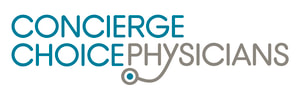|
Originally published March 25, 2024 Increasing Sleep Pressure Happy Monday! We hope you have been waking feeling better rested these last couple of weeks. Remember, we're challenging you to try at least one tip each night during our sleep resolution: As we mentioned last week, there are two primary drivers impacting alertness and sleepiness at the right times of day. One is the Circadian Rhythm (addressed last week) and the other is sleep pressure. Sleep pressure is our need for sleep and is driven by the neurotransmitter, adenosine. After an evening of sleep, our sleep pressure is typically lowest in the morning and, after a busy day, highest at night. Adenosine is the neurotransmitter responsible for sleep drive. It accumulates in the cells during the day, inducing sleepiness at night and is metabolized during sleep, encouraging wakefulness. Essentially, the “pressure” for sleep rises as the day progresses and adenosine rises in our cells. What do many people do to destroy their sleep pressure? Nap! Naps can be an effective tool to refresh the brain and body on the occasion when you haven’t slept. However, naps become a problem when they replace and interfere with a good night’s sleep because naps reduce sleep pressure. Napping creates a vicious cycle of not sleeping, napping to recover and then not sleeping because you napped! Consistently relying on naps to make up for lost sleep is a sign of a deeper, underlying issue to be discussed with a healthcare professional. How do we increase sleep pressure so we can fall asleep at bedtime? The following tips can directly impact your sleep pressure: Be consistent. Keep the same bed and wake times. It is not unusual for people in today’s busy world to binge and purge on sleep, a habit known as “sleep bulimia.” In other words, they skimp on sleep most days (purge) and catch up when they can (binge). This may be a quick fix to offset sleep debt (discussed next week!), but as a regular habit it can lead to social jetlag or a misaligned circadian rhythm (discussed last week and in our Special Edition on Daylight Saving Time). The body prefers consistency, which means going to bed and rising at mostly the same time. Your body will reward your consistent sleep schedule with high sleep pressure at your chosen sleep time to help you fall asleep faster. Exercise. Exercise is so powerful at reducing sleep latency improving sleep quality and it is considered a valuable non-pharmaceutical weapon against sleeplessness. Why is that? Exercise promotes the secretion of adenosine! The relationship between sleep and exercise is bi-directional. Meaning exercise helps you sleep better and sleeping better helps you have the energy to exercise. Conversely, not exercising will prevent sleep pressure from building, interfering with your sleep and not sleeping will leave you without the energy to perform. Be mindful of what you consume and when.
GLOSSARY OF SLEEP-RELATED TERMS
Circadian Rhythm. The 24-hour life cycle of an organism. It is most affected by lightness and darkness and impacts physical, mental and behavioral changes within the organism. Sleep Pressure. The pressure to sleep. It is lowest in the morning upon rising and builds throughout the day to be highest at night. Adenosine. A neurotransmitter that promotes sleep pressure. High amounts of adenosine promote sleep pressure. Sleep Efficiency. The ratio between time spent sleeping vs. time spent in bed. Sleep efficiency of 85% or greater is considered ideal. Sleep Latency. The time it takes a person to fall asleep. Less than 20 minutes is ideal. Sleep Architecture. The basic pattern of normal sleep, divided into REM and non-REM sleep. Glymphatic System. The waste clearance system for the central nervous system. It is most active at night during sleep. Sleep Debt. The difference between the amount of sleep needed and the amount of sleep achieved. Use the calendar to log your time in bed. If you have a sleep tracker, log actual hours slept. Note that the benefits of each resolution build upon the others, and the habits we develop are meant to stay with us well beyond the month the resolution is held. We will continue to log meals without sugar alongside our sleep progress. Feel free to email your Motivated Mondays Coach Michele at [email protected] with your individual questions. TRACK YOUR PROGRESS: YOUR MINI RESOLUTION TO SLEEP BETTER
Log how many hours you've slept each day, and record which sleep tip you followed from the above link. Click below to view and download the log.
0 Comments
Leave a Reply. |
MICHELE MCCAMBRIDGE, MPH, MSMichele is the Senior VP of Membership Development at Concierge Choice Physicians. She is also a professional in the areas of nutrition, fitness and wellness. ArchivesCategories |
|
CCP is a privately held company based in Rockville Centre, New York. We have consulted with and supported hundreds of practices nationally since 2005. For our current list of locations and physicians, please select “Find a Doctor” at the top of the page.
|
Additional Links |
SOCIAL MEDIA |
© Concierge Choice Physicians. All Rights Reserved.





 RSS Feed
RSS Feed
